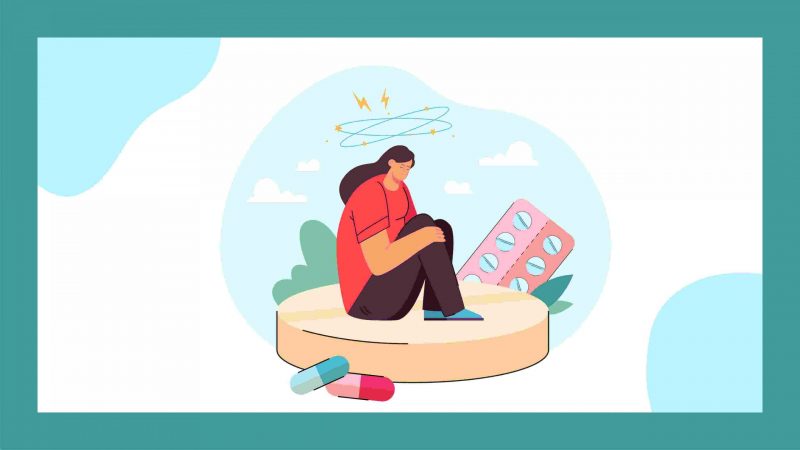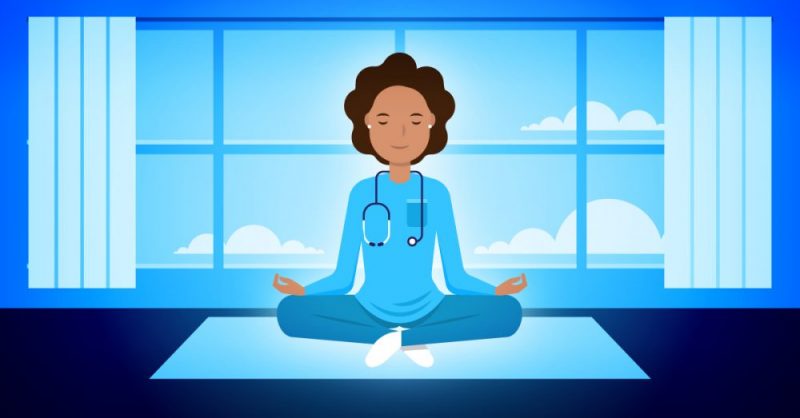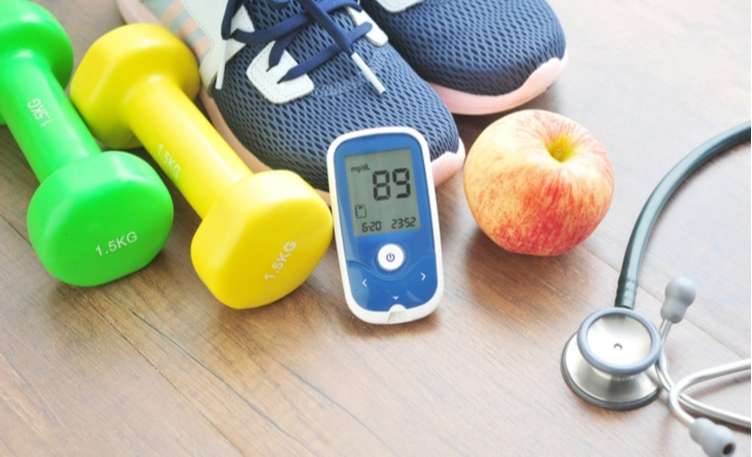Learn how exercise can be your ally in the battle against depression. Explore the incredible impact of physical activity on mental health recovery.
Welcome to a journey of discovery where we delve into the remarkable healing power of exercise. In this article, we’ll explore how physical activity can be your secret weapon in the battle against depression and a pivotal tool for achieving mental health recovery. You’ll be amazed at the transformative potential of something as simple as moving your body. So, grab your sneakers, and let’s start sweating away the blues!

The Battle Within: Understanding Depression
Before we jump headfirst into the invigorating world of exercise, let’s take a moment to understand the adversary we’re up against: depression. Depression is like a dark cloud that can overshadow every aspect of your life, draining your energy, sapping your motivation, and isolating you from the world. It’s not just a case of feeling a little down – it’s a persistent, deep-seated sadness that can feel almost impossible to shake.
Depression doesn’t discriminate; it can affect anyone, regardless of age, gender, or background. It’s a mental health disorder that engulfs your mind, making it difficult to concentrate, sleep, or even find joy in the things you used to love. But here’s the key thing to remember – depression is not a sign of weakness. It’s an illness, just like any other, and it can be treated and managed.
The Medication vs. Movement Debate: Finding the Right Balance
When it comes to treating depression, there are several tools in the toolbox, including medication and therapy. While these options have their merits and can be effective, they aren’t one-size-fits-all solutions. Many individuals experience side effects from medication or find the therapeutic process slow and sometimes emotionally exhausting.
So, what’s the alternative? It’s exercise, my friends! Incorporating physical activity into your life can provide a powerful, drug-free approach to managing depression. Let’s break down how exercise can help you in this battle for mental health recovery.
Elevate Your Mood: The Science Behind It
You might have heard people say that exercise can release endorphins and make you feel happier, and guess what? It’s not just a feel-good myth; it’s backed by science! When you engage in physical activity, your brain releases chemicals like dopamine and serotonin, which are known as “feel-good” neurotransmitters.
These neurotransmitters play a crucial role in regulating your mood, reducing stress, and enhancing your overall sense of well-being. So, by simply lacing up those running shoes or hitting the yoga mat, you’re giving your brain a natural, mood-boosting cocktail.
Stress Buster: Punching Stress in the Face
Stress is often a silent companion to depression. It can exacerbate the symptoms and make you feel even more overwhelmed. But exercise? It’s the stress-buster you’ve been looking for. When you work up a sweat, your body’s stress response system gets a workout too. It becomes more efficient at managing stress, reducing its impact on your mental health.
So, instead of drowning your sorrows in a tub of ice cream, why not kick stress to the curb with a brisk walk or a session at the gym? Your waistline and your mental health will thank you for it!
Boost Self-Esteem: Love Yourself, Love Your Body
Depression can make you feel terrible about yourself, leading to a negative self-image and low self-esteem. Exercise can be your pathway to self-empowerment. As you start to see and feel the positive changes in your body, you’ll gain confidence and a newfound sense of self-worth.
It’s not about achieving a specific body type or reaching a particular fitness level; it’s about embracing the progress you make and appreciating your body’s abilities. Remember, you are strong, and you can conquer this battle against depression!
A Dose of Sunshine: The Outdoors and Vitamin D
Getting outdoors for your exercise routine can be a game-changer. The sun, the breeze, and the great outdoors offer an added boost to your mental health recovery journey.
Nature’s Antidepressant: The Great Outdoors
Spending time in nature can have a profound impact on your mental well-being. Known as ecotherapy or nature therapy, the practice of immersing yourself in natural settings has been proven to reduce symptoms of depression and anxiety.
Studies have shown that simply being in a natural environment can lower stress hormones, improve mood, and enhance overall mental clarity. So, take your workout to the nearest park, forest, or beach, and let nature work its magic!
The Sunshine Vitamin: Vitamin D’s Role
Exercising outdoors also brings the added benefit of soaking up some much-needed vitamin D. This essential vitamin has a strong link to your mental health. A deficiency in vitamin D has been associated with a higher risk of depression and other mood disorders.
When you’re outside, your skin absorbs sunlight and synthesizes vitamin D, which can help regulate mood and boost overall mental health. Just remember to apply sunscreen to protect your skin from harmful UV rays.
Breaking the Cycle of Inactivity: The Link Between Depression and Sedentary Behavior
Depression can lead to inactivity, and inactivity can perpetuate depression – it’s a vicious cycle. When you’re in the depths of depression, the last thing you might want to do is get out of bed, let alone exercise. But understanding this link between depression and sedentary behavior is crucial.
The Inactivity Trap
Depression can sap your energy and motivation, making the idea of exercise seem like an insurmountable mountain to climb. However, it’s important to recognize that inactivity can worsen your depression symptoms over time.
Sitting or lying in the same place for extended periods of time can lead to physical deconditioning, muscle atrophy, and further mental and physical health decline. This can create a cycle of inactivity that’s difficult to break.
Start Small: Baby Steps to Success
The good news is that you don’t need to leap straight into an intense workout routine. In fact, starting small is often the key to success. Begin with activities that feel manageable. It could be as simple as a short walk around your neighborhood, a gentle yoga session at home, or a few minutes of stretching.
The important thing is to establish a routine and gradually build on it. As you gain confidence and stamina, you can increase the intensity and duration of your workouts.
The Social Connection: Building a Support System
Exercise can be a solitary pursuit, but it doesn’t have to be. Engaging in physical activity with others can enhance the benefits and help you build a support system to aid in your mental health recovery.
Group Activities: Strength in Numbers
Participating in group fitness classes, team sports, or even just walking with a friend can provide a strong sense of community. It’s an opportunity to connect with others who share similar goals and experiences.
Being part of a group can motivate you to stay committed to your exercise routine and provide a social network for those moments when you need to talk or share your
feelings. You’re not in this battle alone, and there’s strength in numbers.
Accountability Partners: Stay on Track
Finding an accountability partner, whether it’s a friend or a family member, can be a game-changer. They can help you stay committed to your exercise routine, offer encouragement when you’re feeling low, and celebrate your victories along the way.
When someone is counting on you to show up for a workout, it can be a powerful motivator. Plus, you get to spend quality time with someone you care about while improving your mental health.
FAQs: Your Burning Questions Answered
Let’s address some common questions you might have about using exercise to battle depression and achieve mental health recovery.
1. Can any type of exercise help with depression?
- Yes, any form of physical activity can be beneficial. It could be anything from walking and cycling to dancing and swimming. The key is to find something you enjoy and can stick with.
2. How often should I exercise to see results?
- The frequency of exercise varies from person to person. Aim for at least 150 minutes of moderate-intensity exercise per week, which is the general guideline for overall health. However, any amount of exercise is better than none, so start with what’s manageable for you.
3. Can exercise replace medication or therapy for depression?
- Exercise can be an effective complementary approach to medication and therapy, but it’s essential to consult with a healthcare professional for a comprehensive treatment plan. Some individuals may find that exercise alone is sufficient, while others may require a combination of treatments.
4. What if I have physical limitations or disabilities?
- There are many adaptive exercises and activities that can accommodate physical limitations. Consult with a healthcare provider or a fitness professional to find suitable options for your specific needs.
5. How long does it take to feel the effects of exercise on depression?
- The timeline varies, but many people report feeling some positive effects within a few weeks of starting an exercise routine. However, it may take several months to experience significant improvements in mood and mental health.
Your Path to Mental Health Recovery: Get Moving Today
As we wrap up this exploration of the healing power of exercise, it’s important to remember that the battle against depression is ongoing. But with the right tools and strategies, you can achieve mental health recovery and regain control over your life.
Don’t let depression hold you back any longer. Start incorporating exercise into your daily routine, even if it’s just a few minutes a day. Seek support from friends, family, or a healthcare provider, and don’t hesitate to reach out for professional help when needed.
In the grand scheme of things, exercise is more than just physical activity; it’s a lifeline, a tool for empowerment, and a path to a brighter future. So, let’s sweat away the blues, elevate our mood, and regain our mental well-being one step at a time.
Now, what are you waiting for? Put on those sneakers and take the first step towards your mental health recovery. The healing power of exercise is within your reach, and the battle against depression is one you can win!
External Links:
- Mayo Clinic – Depression and Anxiety: Exercise Eases Symptoms
- Harvard Health Publishing – Exercise is an all-natural treatment to fight depression
- National Institute of Mental Health – Depression
- Mind – How to be physically active and look after your mental health
- Psychology Today – The Mental Health Benefits of Nature
- 10 Proven Workouts for Stress Relief and Anxiety Management





